#Mogens Wieth
Text
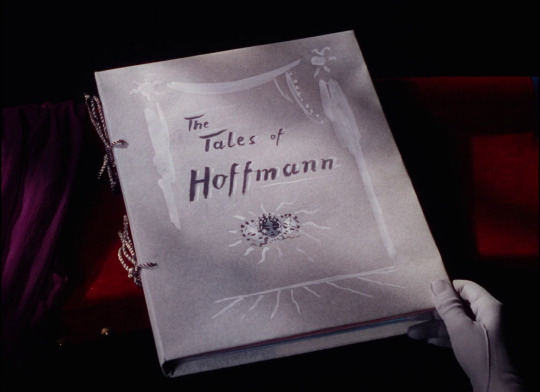
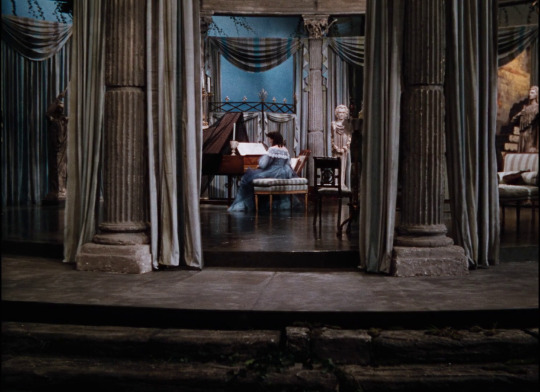

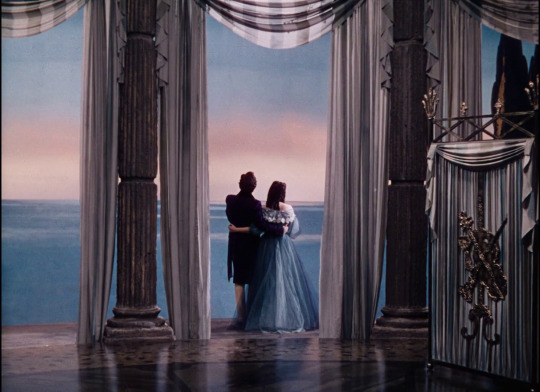
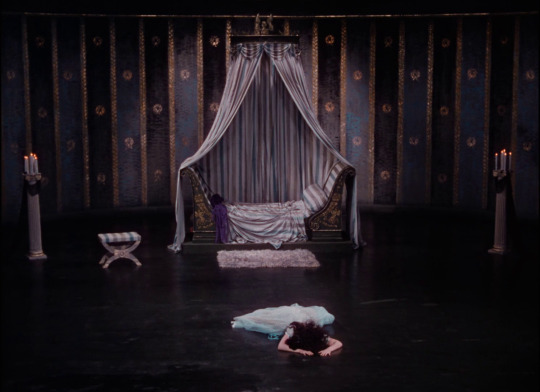
The Tales of Hoffman (1951) | dir. Michael Powell, Emeric Pressburger
#the tales of hoffmann#michael powell#emeric pressburger#ann ayars#robert rounseville#mogens wieth#films#movies#cinematography#screencaps
290 notes
·
View notes
Photo
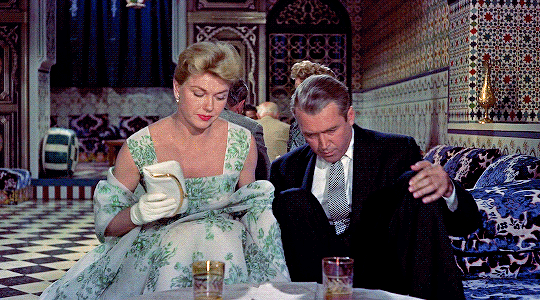
Don't you realize that Americans dislike having their children stolen?
The Man Who Knew Too Much, Alfred Hitchcock (1956)
#Alfred Hitchcock#John Michael Hayes#James Stewart#Doris Day#Brenda de Banzie#Bernard Miles#Ralph Truman#Daniel Gélin#Mogens Wieth#Alan Mowbray#Hillary Brooke#Christopher Olsen#Reggie Nalder#Robert Burks#Bernard Herrmann#George Tomasini#1956
4 notes
·
View notes
Text
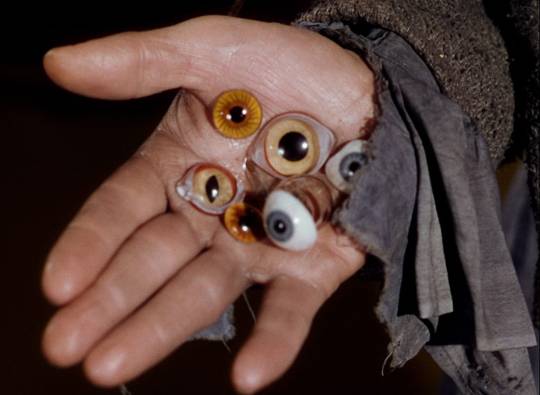
The Tales of Hoffmann (Michael Powell and Emeric Pressburger, 1951)
Cast: Robert Rounseville, Moira Shearer, Ludmila Tchérina, Ann Ayers, Pamela Brown, Léonide Massine, Robert Helpmann, Frederick Ashton, Mogens Wieth, Lionel Harris, Philip Leaver, Meinhart Maur, Edmond Audran. Screenplay: Michael Powell, Emeric Pressburger, Dennis Arundell, based on a libretto by Jules Barbier for an opera by Jacques Offenbach based on stories by E.T.A. Hoffmann. Cinematography: Christopher Challis. Production design: Hein Heckroth. Costume design: Ivy Baker, Hein Heckroth. Film editing: Reginald Mill.
Opera and film are two well-nigh incompatible media, with different ways of creating characters, evoking mood, and telling stories. The handful of good opera films are those that find ways of replicating the operatic experience within a cinematic framework, the way Ingmar Bergman does in his film of Mozart's The Magic Flute (1975), which takes liberties with the original libretto and casts the action in a theatrical setting. For their film of the Offenbach opera The Tales of Hoffmann, Michael Powell and Emeric Pressburger also tinker with the libretto, and with perhaps somewhat more justification: Offenbach didn't live to see his opera performed, and it exists in several variants. Opera companies rearrange and cut its various parts, and even interpolate music from other works by Offenbach. Like The Magic Flute, Hoffmann has fantasy elements that lend themselves to the special-effects treatment available to the movies, and Powell and Pressburger took full advantage. It is usually thought of as a companion piece to their film The Red Shoes (1948), in large part because it used many of the stars of that earlier film, including Moira Shearer, Robert Helpmann, Léonide Massine, and Ludmilla Tchérina, as well as production designer Hein Heckroth. The film version is as much ballet as opera, choreographed by Frederick Ashton, with many of the characters played by dancers whose voices are supplied by singers. The only singers who actually appear on screen are Robert Rounseville as Hoffmann and Ann Ayars as Antonia. Unfortunately, some of the singers whose voices are used aren't quite up to the task: Dorothy Bond sings both Olympia and Giulietta, and the difficult coloratura of the former role exposes a somewhat acidulous part of her voice. Bruce Dargavel takes on all four of the bass-baritone villains played on-screen by Helpmann, but his big aria, known as "Scintille, diamant" in the French version, lies uncomfortably beyond both ends of his range. Rounseville, an American tenor, comes off best: He has excellent diction, perhaps because he spent much of his career in musical theater rather than opera -- though he originated the part of Tom Rakewell in Stravinsky's The Rake's Progress in 1951. He is also well-known for his performance in the title role of Leonard Bernstein's Candide in the original Broadway production in 1956. The film is overlong and maybe over-designed, and it sort of goes downhill after the Olympia section, in which Heckroth's imagination runs wild.
2 notes
·
View notes
Photo



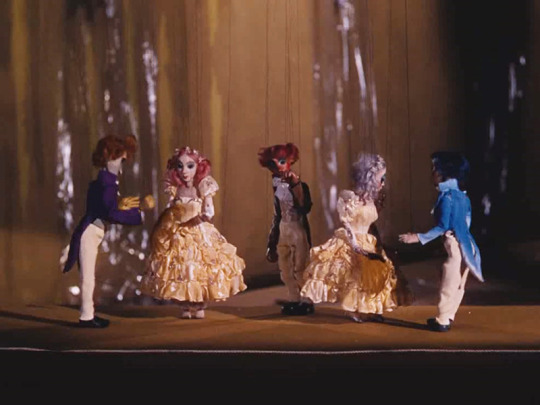




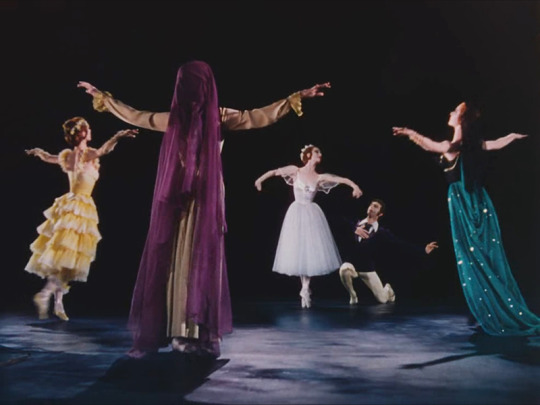
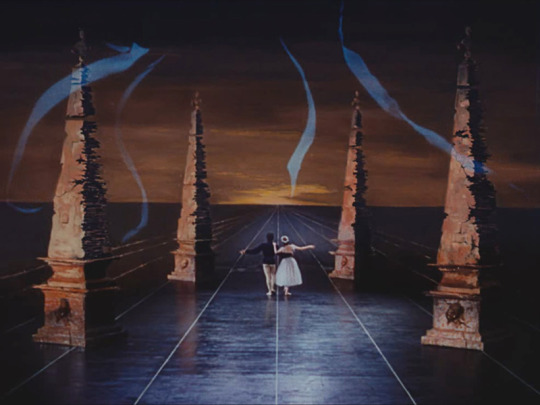
THE TALES OF HOFFMANN (Michael Powell & Emeric Pressburger, 1951)
#the tales of hoffmann#los cuentos de hoffmann#los cuentos de hoffman#michael powell#emeric pressburger#moira shearer#ludmilla tcherina#ann ayars#pamela brown#leonide massine#robert helpmann#frederick ashton#mogens wieth#robert rounseville#film#cine
166 notes
·
View notes
Photo

Mogens Wieth, Ann Ayars, and Robert Helpmann in “The Tales of Hoffmann” (1951), dir. Michael Powell and Emeric Pressburger
#Mogens Wieth#Ann Ayars#Robert Helpmann#The Tales of Hoffmann#film#Powell and Pressburger#Michael Powell#Emeric Pressburger#ballet#opera
0 notes
Photo
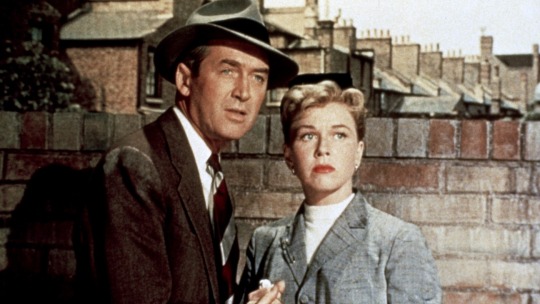
James Stewart and Doris Day in The Man Who Knew Too Much (Alfred Hitchcock, 1956)
Cast: James Stewart, Doris Day, Brenda de Banzie, Bernard Miles, Ralph Truman, Daniel Gélin, Mogens Wieth, Alan Mowbray, Hillary Brook, Christopher Olsen, Reggie Nalder, Richard Wattis, Noel Willman, Alix Talton, Carolyn Jones. Screenplay: John Michael Hayes, based on a story by Charles Bennett and D.B. Wyndham-Lewis. Cinematography: Robert Burks. Art direction: Henry Bumstead, Hal Pereira. Film editing: George Tomasini. Music: Bernard Herrmann.
It's not hard to see why Alfred Hitchcock would want to remake his 1934 film version of The Man Who Knew Too Much. It has good bones: a murder, a kidnapping, a political assassination plot, attractive international locations, colorful villainy, mistaken identifications, and innocents put in jeopardy by sheer accident. But he kind of blew it the first time with pallid protagonists (Leslie Banks and Edna Best), tedious comic byplay involving a sinister dentist, a wacky sun-worshiping cult, and a confusingly staged climactic shootout. Today it's best remembered for Peter Lorre's delicious villainy in his first English-language role. For the remake, Hitchcock supposedly told screenwriter John Michael Hayes not to watch the original or to read its screenplay but to follow his own retelling of the story. The result is a more supple narrative, and the stars, Doris Day and James Stewart, are a definite improvement over Best and Banks. Hayes has made them a rather edgy couple: She's an internationally known musical star who has gone into retirement to marry him, a Midwestern surgeon. He seems to be a bit resentful of her celebrity, and she seems to be a little disappointed at having to settle down in Indianapolis. He's given to outbursts of temper that she sometimes has to quell before he does something rash. Their marital tension never results in an out-and-out fight, but it makes for some uneasy moments. In some respects they verge on '50s stereotypes of male and female roles: He pulls out his medical expertise and administers a sedative to her before telling her that their son has been kidnapped, a rather extreme form of mansplaining. In the 1934 film, Best played an award-winning sharpshooter who fires the shot that kills the villain, while Day is given a softer task: She helps locate their kidnapped son by singing (and singing and singing) "Whatever Will Be, Will Be (Que Sera, Sera)," the film's Oscar-winning song. The remake is 45 minutes longer than the original, and it seems a little overextended. Still, the performances are good, and Robert Burks's Technicolor cinematography and the Marrakesh location of the first part of the film give the remake a definite edge, as does Bernard Herrmann's score. Herrmann makes his only on-camera appearance conducting the London Symphony Orchestra in the "Storm Cloud Cantata" at the Royal Albert Hall, in the pivotal scene that was carried over from the 1934 version.
2 notes
·
View notes
Text
Download The Tales of Hoffmann Full Lenght
The Tales of Hoffmann movie download
Actors:
Mogens Wieth
Ludmilla TchГ©rina
Robert Rounseville
LГ©onide Massine
Robert Helpmann
Ann Ayars
Pamela Brown
Moira Shearer
Frederick Ashton
Download The Tales of Hoffmann
The Tales of Hoffmann - Lyric Opera of Chicago Bitterly comic and farcically tragic. The Tales of Hoffmann - Wolf Trap Foundation for the Performing Arts Friday, August 5 at 8 pm Sunday, August 7 at 3 pm Thursday, August 11 at 8 pm Saturday, August 13 at 7 pm at The Barns Amazon.com: The Tales of Hoffmann (The Criterion Collection. The Tales of Hoffmann (1951) - IMDb With Moira Shearer, Robert Rounseville, Ludmilla Tchrina, Ann Ayars. The Tales of Hoffmann: Information from Answers.com Plot Most baby-boomers are familiar with the Powell-Pressburger production of the Offenbach opera Tales of Hoffman only through the full-color stills from the film. . A. The Tales of Hoffmann - Wikipedia, the free encyclopedia The Tales of Hoffmann (Les contes d'Hoffmann) is an opera by Jacques Offenbach. The Tales of Hoffmann (1951) - The Criterion Collection A poet dreams of three womena mechanical performing doll, a bejeweled siren, and the consumptive daughter of a famous composerall of whom break his heart in. The Tales of Hoffmann - The Santa Fe Opera Overview. Jacques Offenbach died with his masterpiece not quite finished, and that has made The Tales of Hoffmann a predestined victim for adapters who have dropped some. Tenor Paul Groves stars in the title role, the. The French libretto was written by Jules Barbier, based on short stories by E. The Tales of Hoffmann is Offenbachs glorious final masterpiece and it has never before been seen in Santa Fe. Offenbach's masterpiece crowds into the Barns, highlighted by singing that's good to great. T
Under the Mountain online
#The Tales of Hoffmann#Mogens Wieth#Ludmilla TchГ©rina#Robert Rounseville#LГ©onide Massine#Robert Helpmann#Ann Ayars#Pamela Brown#Moira Shearer#Frederick Ashton
0 notes